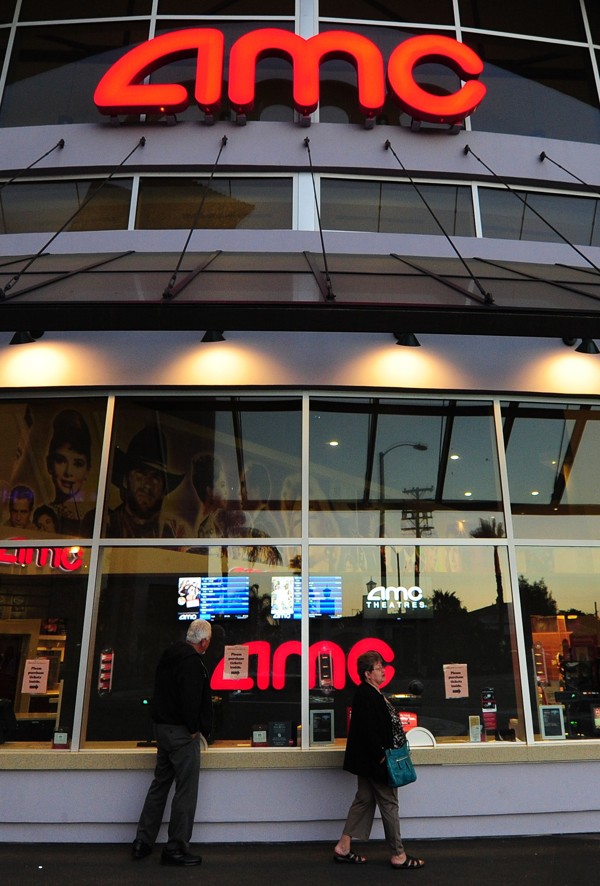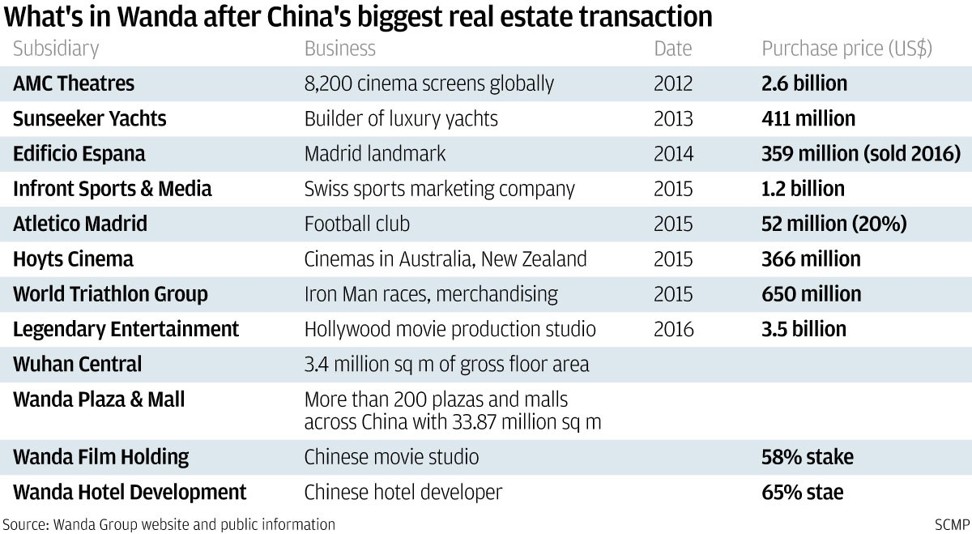
Wanda’s AMC douses fears its expansion will stall because of domestic cash crunch
Company reacts to rumours its ambitions of controlling one in every five of the world’s cinema screens by 2020 were in serious jeopardy
AMC Entertainment, the US entertainment titan tasked with a worldwide cinema buying spree for its Chinese tycoon owner Wang Jianlin, has revealed his parent Dalian Wanda Group and mainland Chinese banks “have never been used as a source of funding” for its numerous acquisition deals.
The revelation came in a statement issued on Tuesday, as the company tried to cushion mounting investor fears it could suffer a cash shortfall after Beijing had put Wanda under scrutiny after a string of recent takeovers, which have included the US$930 million buyout of Nordic Cinema Group this year, and the US$1.1 billion purchase of Carmike Cinemas, the fourth largest in the US, last year.
The statement should help douse rumours that Wang’s ambitions of controlling one in every five of the world’s cinema screens by 2020 were in serious jeopardy.
On Monday, AMC’s shares plunged as much as 10 per cent in New York after South China Morning Post and other media outlets reported Beijing had ordered China’s largest lenders to suspend financing channels for six major Wanda purchases, after the company had crossed the government’s current red line on foreign investments.
The Chinese government has recently turned its attention onto mounting systemic risks posed by the latest debt-fuelled offshore buying binge by China’s conglomerates, which have borrowed aggressively from local lenders.
Four out of the six acquisitions put under Beijing’s spotlight were made by AMC, which the Chinese property-to-entertainment conglomerate bought in 2012 and has built into the world’s largest cinema chain, mainly through a spectacular buying spree of peers, both in Europe and the US.
Following media reports on Monday, millions were wiped off the value of listed companies linked to Wang, who is considered China’s richest billionaire overseeing a portfolio of football clubs, hotels, shopping malls and studios.
Shares in Wanda Hotel Development dipped 13 per cent in a two-day losing streak in Hong Kong, while IMAX China – the widescreen theatre provider of whom Wanda is the biggest business partner – lost 10 per cent on Tuesday.
The two companies’ shares clawed back earlier losses on Wednesday, with Wanda Hotel Development climbing as much as 28 per cent.

According to the Tuesday statement, all committed debt financing for AMC’s three most recent deals were funded by “a syndicate of US-based lenders with AMC as the borrower,” without any financial guarantees or credit enhancements from its parent group.
“That has served as a relief to investors at the very least, though AMC may still face pressure with its parent, currently struggling hard to fill its massive debt hole,” said Ray Zhao, an analyst with Guotai Junan Securities.
Wanda routinely reimburses AMC for general administrative and other expenses.
In February, the Chinese owner also made a generous capital contribution of US$10 million to a group of AMC officials for their “extraordinary services.”
The list of government instructions have also barred Wanda from injecting funds, or conducting any form of financial restructuring involving Hollywood studio Legendary Entertainment and AMC itself.
In 2016, box office hits like Finding Dory and a phenomenal global expansion propelled AMC’s revenues to record highs, though its profit sank 20 per cent to US$33.2 million.
With many of its available avenues of financing now cut off, Wang last week cashed out of the majority of his hotel and theme park holdings, including a US$9.3 billion Harbin park opened just a fortnight before, one of the largest real estate sales in Chinese corporate history.
Cinemas and film studios are now paramount to Wang, who amassed his initial fortune from property in the 1990s.
“Its hundreds of cinemas in China are still performing relatively well on back of its prolific Wanda Plaza shopping malls, which have not been sold so far,” Zhao said.
But hopes are dimming the 62-year-old tycoon will manage to reap the same rewards from those as he has in the past, given the recent drop in Chinese movie takings.
Following a gloomy 2016, China’s box office market expanded just 3.7 per cent in the first half of the year, despite an influx of Hollywood blockbuster releases such as The Fate of the Furious and Transformer: The Last Knight.


